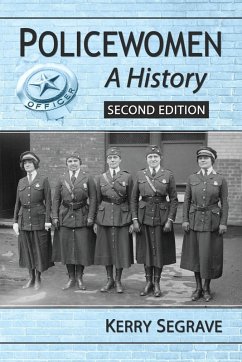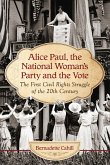Women in policing have seen three phases of acceptance. Beginning in about 1880, they were admitted as police matrons with extremely limited duties. Next they were accepted as policewomen around 1910-1916, when that title was officially bestowed on them. Finally came assignment of females as general duty officers in the late 1960s and early 1970s. Not coincidentally, an active women's movement was the driving force behind all three phases. As women in policing went from matrons to regular officers, they faced harassment and discrimination that only worsened as they neared equality. Many still face it today. This book examines the history of policewomen from 1880 to 2012--particularly in the U.S.--and tells the story of their gradual recognition by the professional establishment of male officers.
Hinweis: Dieser Artikel kann nur an eine deutsche Lieferadresse ausgeliefert werden.
Hinweis: Dieser Artikel kann nur an eine deutsche Lieferadresse ausgeliefert werden.








